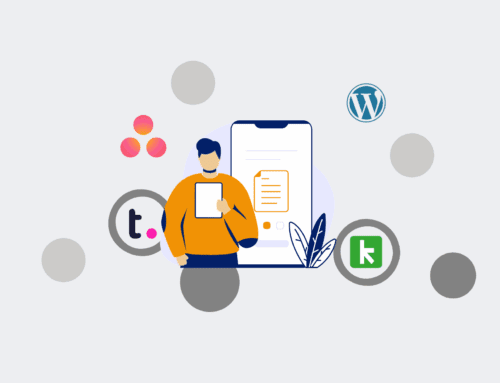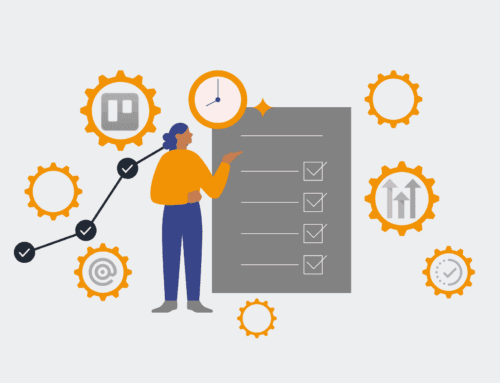Leveraging Automation for High-Volume Hiring: Lessons from Retail and Hospitality
The perpetual churn of high-volume hiring in sectors like retail and hospitality presents a unique and often overwhelming challenge for talent acquisition teams. Imagine a scenario where the hiring funnel is less a funnel and more a constantly flowing river, requiring ceaseless attention, rapid processing, and consistent quality. Traditional, manual recruitment processes, already strained in many industries, simply buckle under this immense pressure. For businesses where a vacant role directly impacts customer experience and immediate revenue, the cost of inefficiency isn’t just a budget line item; it’s a direct impediment to growth and operational stability. At 4Spot Consulting, we’ve seen first-hand how these dynamics can exhaust resources and bottleneck an entire organization.
The Unseen Costs of Manual High-Volume Hiring
Many businesses mistakenly view the costs of high-volume hiring as simply the salary of recruiters or advertising spend. However, the true burden lies in the unseen inefficiencies and lost opportunities. The constant manual screening of hundreds of applications, the endless email exchanges for interview scheduling, and the repetitive data entry required at each stage not only consume vast amounts of time but also introduce human error and significant delays.
The Talent Acquisition Treadmill
Retail and hospitality are characterized by higher turnover rates and seasonal demand fluctuations, meaning the “talent acquisition treadmill” never stops. Recruiters are perpetually engaged in reactive hiring, leaving little room for strategic planning or proactive talent pipelining. This reactive loop leads to rushed decisions, suboptimal hires, and an inconsistent candidate experience, further exacerbating turnover. The result? A cycle where teams are constantly putting out fires instead of building robust, scalable recruitment infrastructures.
Why Retail and Hospitality Lead the Charge in Automation Adoption
These industries, perhaps more than any others, understand the critical need for speed and efficiency in hiring. A restaurant can’t open without kitchen staff, and a retail store loses sales without associates on the floor. This immediate, tangible impact on business operations has driven a pragmatic adoption of automation strategies, offering valuable lessons for any organization facing similar high-volume demands.
Speed and Scale Are Non-Negotiable
In retail and hospitality, vacancies don’t just sit; they actively harm the business. Unfilled positions mean longer wait times, reduced service quality, and ultimately, lost revenue. This intense pressure has forced these sectors to look beyond traditional methods, embracing automation not as a luxury, but as an essential operational imperative. They are demonstrating that the ability to quickly identify, engage, and onboard qualified candidates at scale is a competitive advantage.
Strategic Automation: Beyond Basic Applicant Tracking
For organizations looking to emulate this success, automation isn’t merely about implementing an Applicant Tracking System (ATS). It’s about strategically integrating AI and low-code platforms like Make.com to create a seamless, end-to-end candidate journey that handles volume with precision and personalization. This holistic approach frees up human recruiters to focus on critical decision-making and relationship building, rather than administrative tasks.
Automating the Full Candidate Journey
Consider the potential: imagine a candidate applying online, immediately receiving a personalized pre-screening questionnaire with AI-driven insights, followed by automated interview scheduling based on recruiter availability, all without a single manual touchpoint. Offer letters can be generated and sent automatically once approved, and onboarding tasks initiated upon acceptance. Tools like Make.com act as the central nervous system, connecting disparate HR systems (ATS, HRIS, CRM, background check platforms) to ensure data flows effortlessly, eliminating manual data entry and ensuring consistency.
This goes beyond simple task automation; it’s about intelligent workflow orchestration. For instance, AI can analyze resumes for specific skills and cultural fit indicators, automatically advancing suitable candidates while providing personalized feedback to those who don’t meet the criteria. This not only speeds up the process but also enhances the candidate experience, even for unsuccessful applicants, protecting your employer brand.
Tangible Outcomes: What Automation Delivers
The benefits of strategically implemented automation in high-volume hiring are profound and measurable. Businesses can expect to see a significant reduction in time-to-hire, often by 50% or more, allowing them to fill critical roles faster and minimize operational disruption. Cost-per-hire decreases as manual overheads are slashed, and recruiter productivity soars, enabling smaller teams to manage larger candidate pipelines more effectively. Furthermore, a streamlined, consistent process leads to a superior candidate experience, enhancing employer brand and increasing offer acceptance rates. We’ve seen clients save over 150 hours per month by automating their resume intake and parsing process, freeing up valuable HR resources for strategic initiatives.
Beyond the immediate gains, automation provides invaluable data. By tracking every touchpoint and outcome, organizations gain unprecedented insights into their recruitment funnels, allowing for continuous optimization and data-driven decision-making. This shift from reactive to proactive, data-informed hiring is the true power of automation.
Implementing Automation Strategically with 4Spot Consulting
While the benefits are clear, implementing effective automation requires a strategic approach, not just throwing technology at the problem. At 4Spot Consulting, our OpsMap™ framework helps organizations first diagnose their specific pain points and identify the most impactful automation opportunities. We then design and build tailored solutions, leveraging platforms like Make.com and AI, to create bespoke systems that eliminate bottlenecks and drive measurable ROI. Our focus is on creating systems that truly save you 25% of your day, allowing your high-value employees to focus on what matters most.
If you’re grappling with the demands of high-volume hiring, the lessons from retail and hospitality are clear: automation isn’t just about efficiency; it’s about strategic advantage, operational resilience, and sustained growth. The question isn’t whether to automate, but how to do it intelligently and effectively.
If you would like to read more, we recommend this article: The Automated Recruiter: Unleashing AI for Strategic Talent Acquisition









